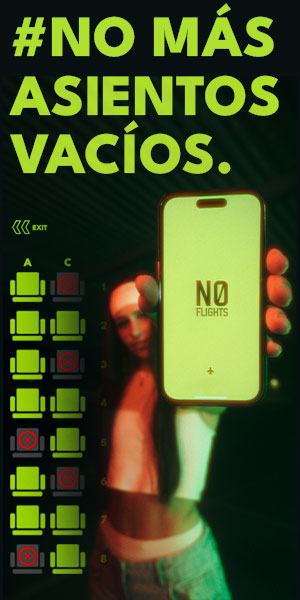
BALPA- GOVERNMENT MUST PROTECT FLIGHTS FROM 'DODGY BACKROOM DEAL' ON EU SAFETY CUTS
09/10/2013
Last week the European Parliament specialist Transport Committee rejected proposals from the European Commission for unsafe new EU pilot flying time rules. Following intensive lobbying from the airline industry and 'dodgy last minute backroom deals' MEPs voted today not to confirm this decision, which means the rules can now be implemented, unless the EU Council of Ministers decides to discuss and vote on them.
But to date the UK Government and flight safety regulator, the Civil Aviation Authority have wholeheartedly supported the planned EU cuts to UK flight safety, ignored the evidence presented by both Britain's 10,000 pilots and the scientific community and failed to stand up for UK standards, which are currently the highest in Europe. British pilots are calling on the Government to look at the evidence and demand that the unscientific and unsafe new rules are voted on by the EU Council of Ministers, which includes UK Transport Ministers.
If the EU Council of Ministers fails to block the rules, the British Airline Pilots Association (BALPA) is calling on the UK Government to do what it threatens elsewhere and repatriate this rule making from Europe so existing higher UK standards can be maintained and passenger safety better protected. Alongside this, BALPA will be seeking an urgent investigation into current levels of severe tiredness among pilots under the existing high quality standards.
Jim McAuslan, BALPA General Secretary, said:
'British pilots want to make every flight a safe flight and are deeply concerned that these unsafe new EU rules will put the lives of passenger at risk. The UK Government and flight safety regulator have helped the European Commission force through these rules by dodgy last minute backroom deals, which have been made up as they have gone along. This has been a botched process by the EU from start to finish. Passengers and pilots deserve flight safety rules based on rigorous science and evidence, not secret dodgy deal making in Strasbourg, which will mean that Britain no longer has the safest skies in Europe.
'Pilots are calling on the Government and CAA to carry out and publish an immediate scientific review of the impact of the botched new EU rules and demand that they are discussed and voted on by UK Ministers in the EU Council. These rules will see already tired British pilots flying double the number of 5am starts, longer at night and landing a plane having been awake for 22 hours. The EU Transport Committee, UK MPs, pilots across Britain and Europe, scientists and the British flying public.'
British passengers rely on the UK Government, Secretary of State for Transport and the flight safety regulator (Civil Aviation Authority) to keep our skies safe, yet they are supporting the following EU cuts to UK flight safety:
EU flight safety cut: There will be no limit on the number of «early starts», which usually require pilots to get up for work at between 3 am and 5 am to report for duty at the airport between 0500 – 0659.
Current UK safety standard: Because of the risk of cumulative tiredness British pilots can only do three early starts in a row. After that they must either have a rest period or can only do a flying duty that starts later.
EU flight safety cut: Just two pilots (Captain and Co-pilot) will be able to fly long-haul for up to 14 hours of duty. This would mean pilots flying from London to Los Angeles or Japan without enough rest during the flight to ensure they were alert for landing or cover if one pilot becomes unwell.
Current UK safety standard: Three pilots are required for flights that require over 11 hours and 45 minutes of duty to enable each of the pilots to get sufficient rest to be fully alert when flying.
EU flight safety cut: pilots will be able to work 110 hours in 14 days.
Current UK safety standard: British pilots are restricted to 95 hours duty in 14 days and severe tiredness is currently their major challenge in making every flight a safe flight.
EU flight safety cut: airline managers will be able to plan ahead to extend a pilots duty by an hour twice a week without any restrictions. British pilots expect this extension, a core demand of the airline industry from the new rules, to become a standard part of their rostered hours.
Current UK safety standards: Only the aircraft Captain can extend the hours of the crew and they are required by law to take account of potential tiredness and safety risks.
EU flight safety cut: if a pilot is flying multiple flights in a single duty the total hours they are allowed to fly only start to reduce after two flights.
Current UK safety standard: based on scientifc research and to minimise the safety risks associated with tiredness when a pilot is flying multiple flights in a single duty, the total hours they are allowed to fly start to reduce after one flight.
EU flight safety cut: Under the current proposals, after being delayed at home waiting to report for their flight (if the departure is delayed by bad weather, for example), British pilots can fly for longer than allowed currently. This will mean that after a series of delays they could be landing a plane having been awake for 22 hours and, in some instances, 24 hours. The tiredness related reduction in their reaction time, after having been awake for 22 hours, is equivalent to being 4 times over the legal blood alcohol limit for flying. The EU Commission and UK CAA argue that this should be rare under the new rules but cannot guarantee this and admit it will be possible. The safety of passengers cannot be protected by rules enabling situations that 'should not' and 'may not' happen, the rules should prevent this happening as UK standards currently do.
EU flight safety cut: a pilot can be repeatedly delayed at home (called every two hours for example) for an unlimited period of time, unable to get sufficient rest and still be required to report for a full flight duty.
Current UK safety standard: After being delayed at home for four hours waiting to report for their flight, the total hours a pilot is allowed to fly begins to reduce for any additional time that they are delayed (ie a planned 10 hour duty is reduced to 9 hours if the pilot is delayed at home for 5 hours). If a pilot is repeatedly delayed, the time they are allowed to fly when they do report is reduced to be within safe limits. If the anticipated duty period is beyond safe limits, after a lengthy delay, an airline will allocated a new, rested pilot.
EU flight safety cut: a pilot can be held on standby at home for up to 16 hours, when they must be rested and ready to report at short notice for any flight duty required. The flight duty a pilot is allowed to carry out is reduced by the amount of time that they have been held on standby above 8 hours.
Current UK safety standard: pilots can only be held on standby at home for up to 12 hours and the total duty time allowed is reduced by any time they have been on standby for above 6 hours.
EU flight safety cut: pilots can be held on 'reserve', which will mean they can be contacted while resting on their days off and required to report for duty 10 hrs later.
Current UK safety standard: days off are rostered as important rest days. To give airlines flexibility and ensure their pilots are properly rested, their rosters include designated and agreed duty periods where pilots are available to be called to report for duty 10 hours later.
EU flight safety cut: pilots will be required to fly up to 11 hours at night, despite scientific advice commissioned by the European Aviation Safety Agency recommending a safe limit of 10 hours.
Current UK safety standard: there is an 11 hour limit in the UK for single flights however for more two flights (ie there and back) pilots can only be on duty for 10 hours and 15 mins, this reduces further for three or more flights. Pilots think all flight duties should be reduced to the safe 10 hour limit suggested by scientists.









